4 Best Foods for High Blood Sugar
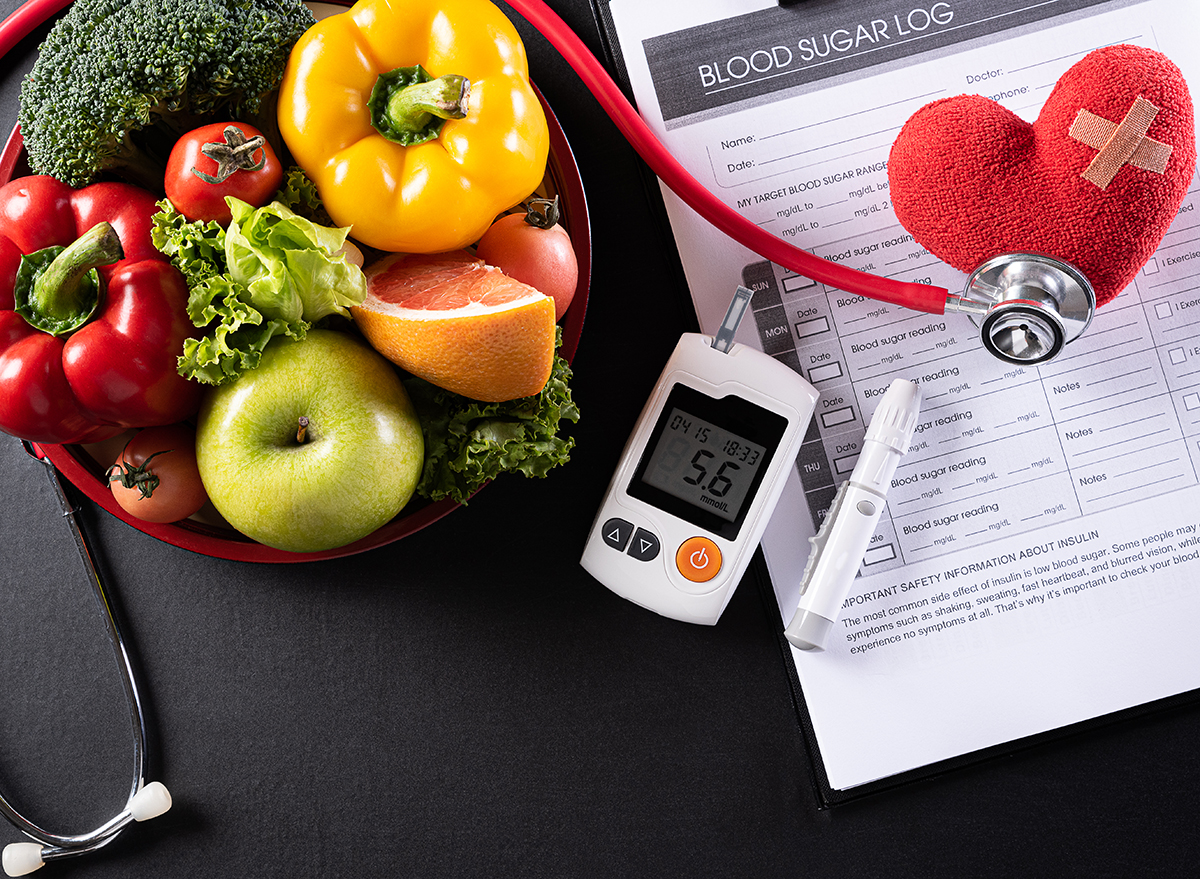
There are a variety of conditions and factors that can lead to high blood sugar, including being overweight, having type 2 diabetes, and other factors that may be caused by diabetes, like a lack of physical activity or coping with stress. If you're at risk of or you have high blood sugar, you may want to look for foods to help keep your blood sugar stable or find ways to lessen your blood sugar spikes.
"There is no food that can lower blood sugar levels, as that is the job of insulin," says Toby Amidor, MS, RD, CDN, FAND, award-winning nutrition expert and Wall Street Journal best-selling author of Diabetes Create Your Plate Meal Prep Cookbook. "When your body finds that there is sugar in your blood, it releases insulin to help get the sugar out of your blood and into your body's cells where it can provide energy."
However, Amidor says that you can choose certain foods which will have minimal effects on blood sugar spikes. Or, choose foods that have a lower glycemic index (GI) that won't impact your high blood sugar. Keep on reading to discover four foods that are nutritious to eat and won't have a negative impact on your high blood sugar.
Eggs
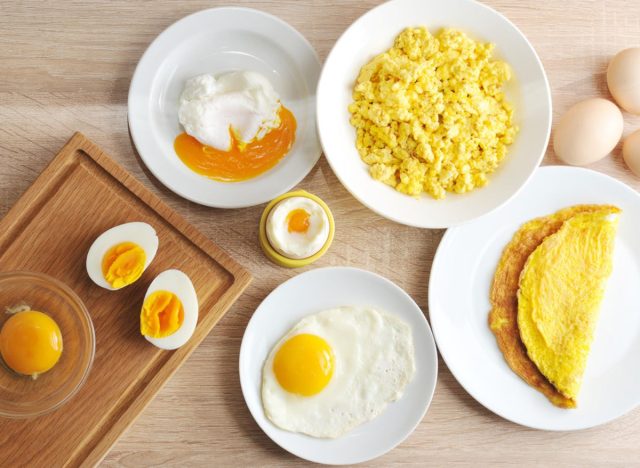
A great breakfast staple, post-workout snack, or anything in between, eggs are a high-protein food that won't affect your high blood sugar.
"Eggs are a protein food that has close to no carbs," says Amidor. "Therefore, they will have a minimal effect on your blood sugar."
According to a 2018 study published in the Food & Function Journal, eating one large egg daily may reduce the risk of diabetes. The study also found that subjects who ate eggs had better fasting blood glucose levels, meaning eggs can help keep blood sugar regulated.
Broccoli
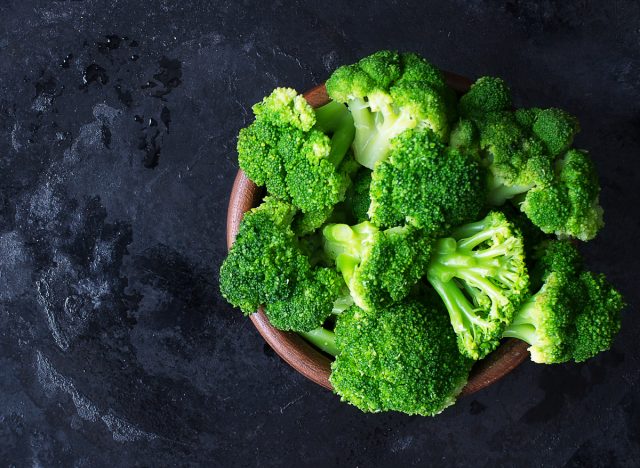
This versatile, cruciferous vegetable may be your ticket to keeping your blood sugar intact.
"Broccoli is a low-carb vegetable that is brimming with vitamins, minerals, and phytochemicals—natural plant compounds that have been shown to help fight and prevent disease," says Amidor. "They also contain fiber and a few carbs (~5 g carbs per serving) and do not cause a spike in blood sugar."
Furthermore, Amidor suggests that having fiber also helps slow down their absorption into the blood, which minimizes how quickly carbs (broken down into glucose) are absorbed into the blood.
Brown rice
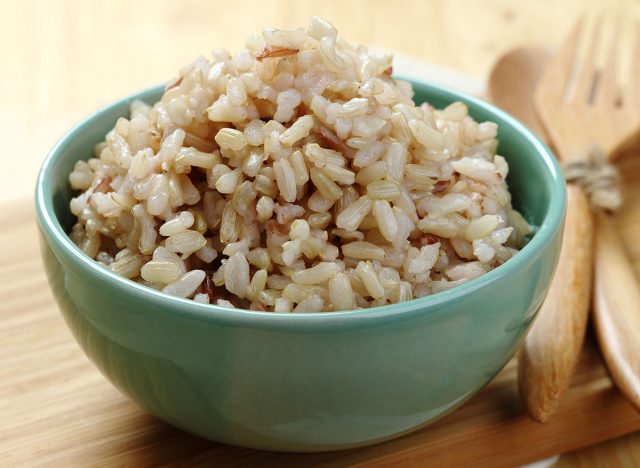
"Although whole grains do contain carbs, they also provide fiber," says Amidor. "Fiber slows down how quickly it's absorbed into the blood. This means that once the brown rice is broken down to glucose, it will slowly be absorbed into the blood, therefore helping to minimize any blood sugar spikes."
Brown rice also contains manganese, which is helpful for many processes in the body, including blood sugar regulation.
Soybeans
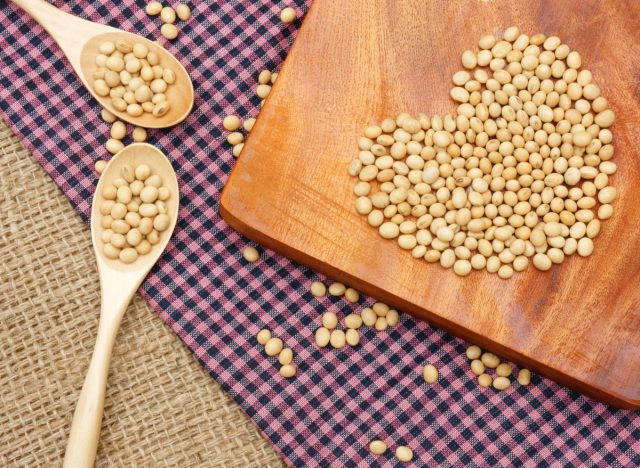
"Tofu and soybeans (like edamame) contain minimal carbs and as such do not cause spikes in blood sugar," says Amidor.
Soybeans have one of the lowest GI values of all the legumes. This is most likely because of their higher protein and fat content.
In a study published by The University of Massachusetts Amherst, eating soy foods (such as tofu and soybeans) has been linked to decreased blood glucose levels. Also, eating these foods has improved glucose tolerance in people with diabetes.
If you're looking for more soy-based products, try soy nuts, soy sauce, tempeh, and sprouts.









